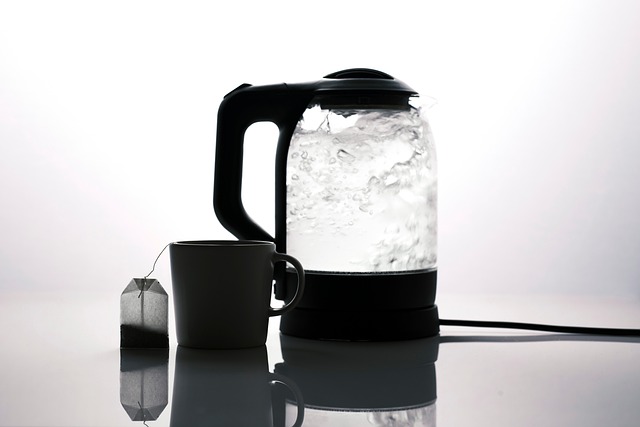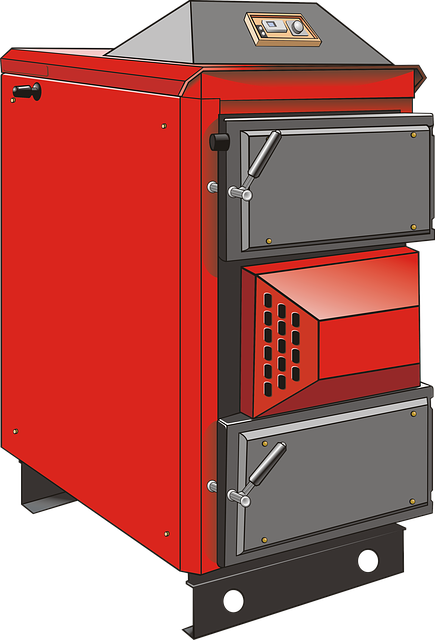Water heater maintenance is key to preventing severe issues like leaks, tank failure, and reduced efficiency. Regular flushing, cleaning, inspections for corrosion & rust, and checks for unusual noises extend the lifespan of your heater, save costs on repairs, and ensure a reliable hot water supply. Annual flushing, sediment-reducing devices, and professional inspections are crucial. If basic troubleshooting fails, call professionals who can diagnose & repair complex issues safely and effectively.
Water heaters are essential home appliances, but they can encounter various problems, from sediment buildup to leaks. Understanding these common issues is the first step toward efficient water heater maintenance. This article guides you through identifying and preventing sediment accumulation, offering practical tips for regular upkeep. By following these practices, you can extend your water heater’s lifespan and avoid costly repairs. Learn when it’s time to call in professionals for complex issues, ensuring optimal water heater performance and safety.
- Understanding Common Water Heater Issues
- Maintenance Tips to Prevent Sediment Buildup and Leaks
- When to Call in the Professionals for Repairs
Understanding Common Water Heater Issues

Water heater problems can range from minor inconveniences to major disasters, depending on the issue. Understanding common water heater issues is the first step in ensuring smooth operation and longevity of your appliance. One of the most frequent problems is sediment buildup, which occurs when minerals and other particles accumulate at the bottom of the tank. This not only reduces the water heater’s efficiency but can also lead to leaks and even tank failure if left unchecked.
Regular water heater maintenance, including flushing and cleaning, is key to preventing these issues. Additionally, checking for any signs of corrosion, rust, or unusual noises can help catch problems early on. By addressing these common water heater concerns promptly, homeowners can avoid costly repairs and extend the lifespan of their appliances, contributing to more efficient and cost-effective hot water supply.
Maintenance Tips to Prevent Sediment Buildup and Leaks

Regular water heater maintenance is key to preventing sediment buildup, a common issue that can lead to leaks and reduced efficiency. Start by flushing your heater at least once a year, especially if it’s in a hard water area. This process involves opening the temperature and pressure relief valve to remove accumulated mineral deposits and debris. Additionally, consider installing a water softener or filter to reduce sediment ingression, further safeguarding against buildup.
Don’t forget to inspect the heater’s anode rod, which protects the tank from corrosion. Over time, it can erode, indicating the need for replacement. Lastly, ensure proper ventilation and check for any signs of damage or corrosion during routine inspections. These simple yet effective water heater maintenance practices will contribute to its longevity and optimal performance, saving you from costly repairs.
When to Call in the Professionals for Repairs

If you’ve attempted basic troubleshooting and your water heater still isn’t functioning properly, it’s time to call in the professionals. Ongoing water heater maintenance is key to preventing unexpected breakdowns, but even with regular care, components can wear out or fail over time. Signs that a professional should take a look include persistent leaks, unusual noises coming from the tank, significantly reduced hot water output, or the inability to heat water at all.
Regular inspection and maintenance by a qualified technician can often catch potential issues early on, saving you money in the long run by preventing more severe (and costly) damage. They have the specialized tools and knowledge to diagnose complex problems and perform repairs safely and effectively, ensuring your water heater continues to operate efficiently and reliably.
Regular water heater maintenance is key to preventing common issues like sediment buildup and leaks. By implementing simple, proactive steps outlined in this article, you can extend the lifespan of your water heater and ensure reliable hot water access. Don’t overlook the importance of routine inspections and cleaning – it’s an investment in your home’s comfort and safety. Embrace water heater maintenance as part of your regular home upkeep for peace of mind.
